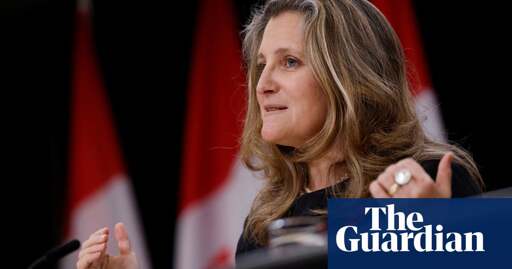Summary
Canada’s Deputy Prime Minister and Finance Minister Chrystia Freeland resigned amid rising tensions with PM Justin Trudeau over Donald Trump’s proposed 25% tariffs on Canadian goods.
Freeland criticized Trudeau’s economic approach, warning of a “grave challenge” and advocating fiscal prudence to prepare for a “coming tariff war.”
Her departure leaves Trudeau politically vulnerable as his popularity wanes, with Liberal MPs and opposition leaders calling for his resignation.
Freeland, a key figure in Canada-U.S. trade relations, is seen as a potential replacement for Trudeau in the next election.



No, the deputy PM is pretty much the subordinate of the PM and can be fired by them at any time.
I know you are genuinely confused just because you are unfamiliar with our system, so I will try to compare it to the US one. It’s like if a US House Rep like Alexandria Ocasio-Cortez, also held Secretary of the Treasury Janet Yellen’s position, and also nominated to a title similar to Kamala Harris.
Trudeau and Freeland are not elected directly as leaders, but they were elected individually in their riding as Members of Parliament (MPs). But the leading party caucus of MPs nominates their leader (Trudeau), then the leader selects their deputy PM (Freeland) and cabinet ministers to lead governmental departments (like MacKinnon, Freeland, Holland etc.), usually following certain conventions. You can read about it here.
The spending measure passes the House of Commons and Senate (Parliament, akin to the US Congress). However, as her role as Minister of Finance she disagrees with the move, so she resigns from that. She will stay as an MP unless she resigns as that, but if she really disagrees with her party she can unalign herself from the Liberal caucus.
That sounds a lot like how it works here (Denmark), Where ministers are the actual government with the Prime minister as the leader, and a government composed min ministers from different parties is a coalition government. That cooperate because no single party has a majority.